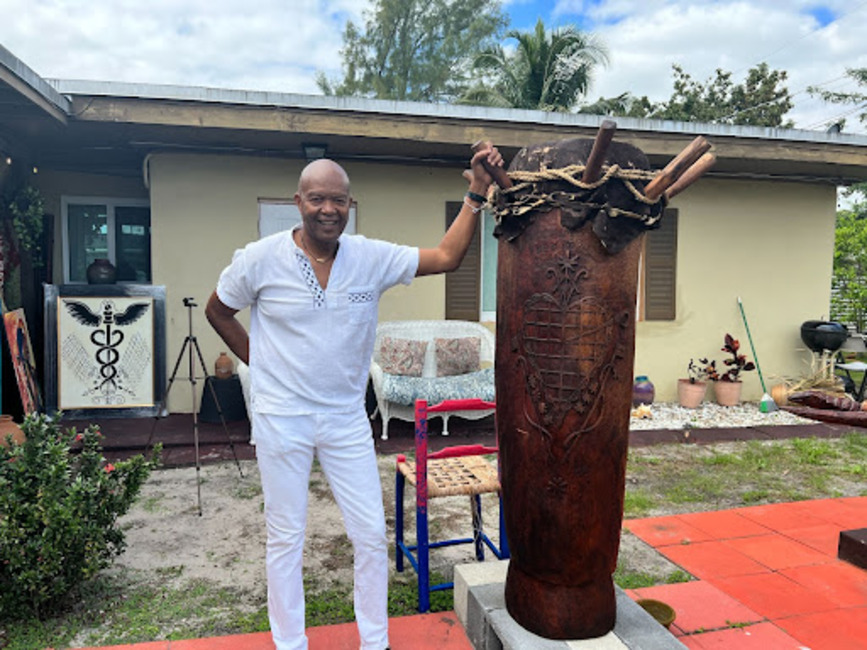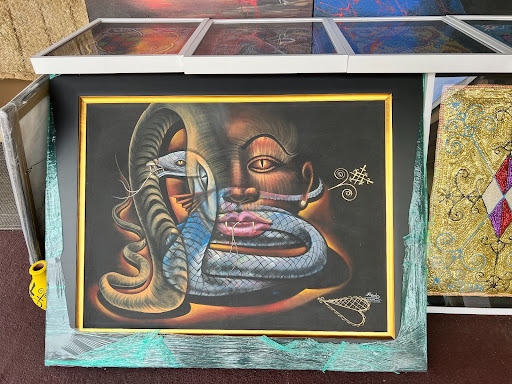Miami is a melting pot of different cultures and communities. While the Haitian community is well known throughout the city, one man recognized that voodoo was beginning to lose exposure.
Emmanuel Millien started the Miami International Voodoo Museum about four years ago using the space in his backyard in North Miami. He began compiling art pieces from his home country, Haiti, and from his travels to Brazil.
“I always wanted to enhance tourism in Haiti,” Millien said, “But I never got the chance because of all the political turmoil, but I find here in Miami there is a way I can do that.”

Millien is an FIU graduate who received his degree in hospitality management and went on to become a cultural tourism professor at Miami-Dade College. He soon realized that the culture of voodoo was not properly represented.
“Voodoo really embraces all the black race,” he said, “And we are all struggling wherever you are as a black person in the world…because we don’t embrace our culture.”
Voodoo’s first known origins can be traced to West Africa. The practice spread throughout the Caribbean to countries like Haiti through the transatlantic slave trade, also known as the African Diaspora. Religious ceremonies include song, dance, drumming and prayer to deities and ancestors. The Western world often portrays voodoo as spirit conjuring and witchcraft. Millien would like to put an end to the stereotypes and misconceptions.
“People always think of voodoo — using a doll — to pin the doll sending a curse to people…it’s all false,” Millien said.
In order to help spread awareness about the under-represented culture that is Voodoo, Millien set up an art exhibit in his backyard in early February that contained many historical pieces. Despite his efforts to invite city officials, he said there wasn’t a great turnout.
“It’s because of the bias, because I call it voodoo,” Millien says “But that’s what it is and I have no other word for it.

Millien and the museum are currently a one-man show. As for the future, Millien says he plans to go to a Smithsonian religion arts show this summer in Washington, D.C.He hopes that the museum will soon have a permanent home where the public can openly visit.
“Voodoo is considered my culture,” Millien said. “I try to promote it in a certain way to make people around the world think differently about voodoo.”
Millien has set up a GoFundMe page to raise money for a location for the museum.































